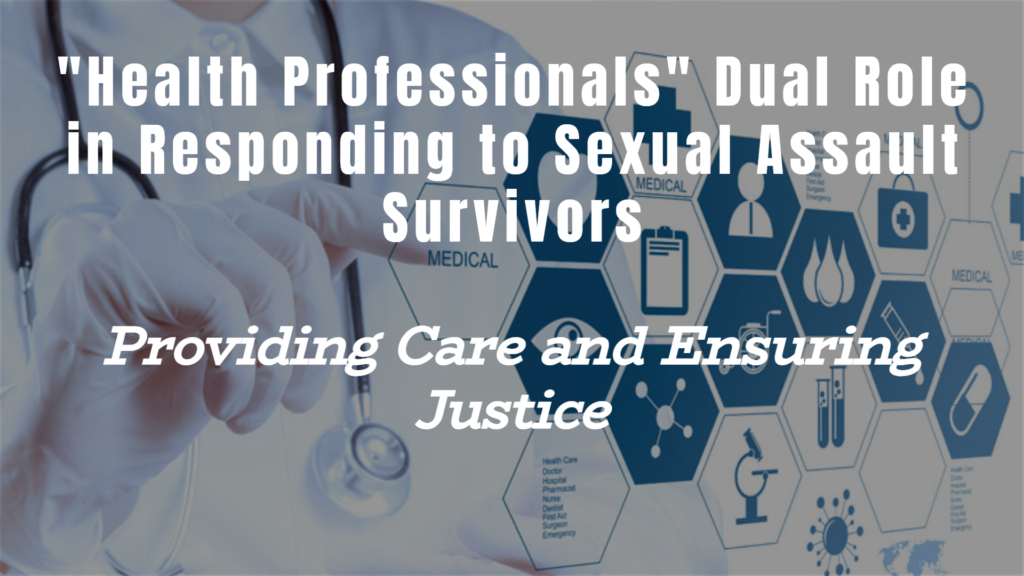Health professionals play a crucial role in responding to survivors of sexual assault, as they have a dual responsibility to provide necessary medical treatment and psychological support, as well as to assist survivors in their medico-legal proceedings by collecting evidence and ensuring good quality documentation. It is important to note that after making an assessment regarding the severity of sexual violence, the first responsibility of the doctor is to provide medical treatment and attend to the survivor’s needs, while keeping in mind that the sites of treatment would also be examined for evidence collection later.
Legal obligations of health workers in cases of sexual violence are laid out in Section 164 (A) of the Criminal Procedure Code, which requires a registered medical practitioner employed in a hospital run by the government or a local authority, or any other RMP in their absence, to conduct the examination of a case of rape without delay and prepare a reasoned report. The RMP must record the consent obtained specifically for this examination and the exact time of the start and close of examination, and forward the report without delay to the Investigating Officer (IO), who will in turn send it to the Magistrate.
Under the Criminal Law Amendment Act 2013, both private and public health professionals are obligated to provide treatment, and denial of treatment of rape survivors is punishable under Section 166 B IPC. Health professionals need to respond comprehensively to the needs of survivors, which includes providing necessary medical support, establishing a uniform method of examination and evidence collection, informed consent for examination and evidence collection, first contact psychological support and validation, maintaining a clear and fool-proof chain of custody of medical evidence collected, and referring survivors to appropriate agencies for further assistance (such as legal support services, shelter services, etc.).
To establish a rapport with the survivor, health workers should avoid saying or doing anything to suggest disbelief regarding the incident, pass judgmental remarks, or make comments that might appear unsympathetic. Instead, they should appreciate the survivor’s strength in coming to the hospital and convey important messages such as the survivor is not responsible for precipitating the act of rape by any of their actions or inactions. They should explain that this is a crime/violence and not an act of lust or for sexual pleasure, and emphasize that this is not a loss of honor, modesty, or chastity but a violation of the survivor’s rights, and it is the perpetrator who should be ashamed. Health workers should take help from a counselor if required.
During the examination, health workers should explain to the survivor in simple and understandable language the rationale for various procedures and details of how they will be performed, ensure confidentiality, and explain that the survivor must reveal their entire history to the health professional without fear. Health workers should also explain to the survivor that genital examination may be uncomfortable but is necessary for legal purposes and inform them about the need to carry out additional procedures such as x-rays, which may require them to visit other departments.
Finally, the purpose of forensic medical examination is to form an opinion on whether a sexual act has been attempted or completed, whether such a sexual act is recent, whether any harm has been caused to the survivor’s body, and the age of the survivor needs to be verified in the case of adolescent girls/boys. Health workers should also ascertain whether alcohol or drugs have been administered to the survivor. By following these guidelines, health professionals can provide effective support to survivors of sexual assault and help them in their medico-legal proceedings.
